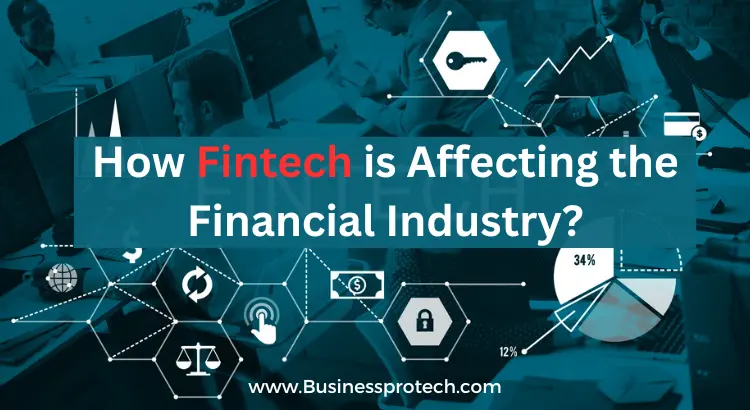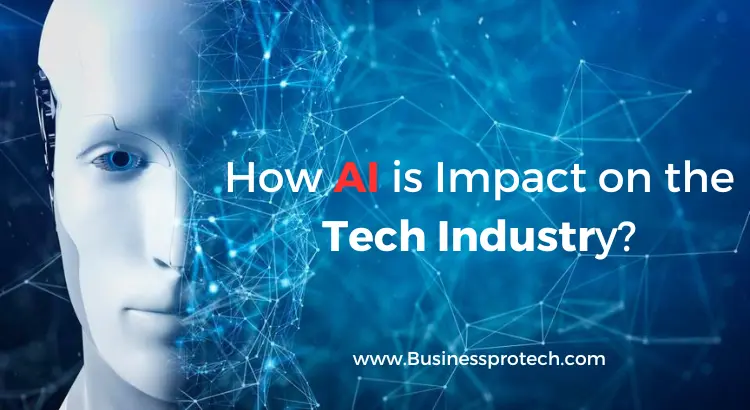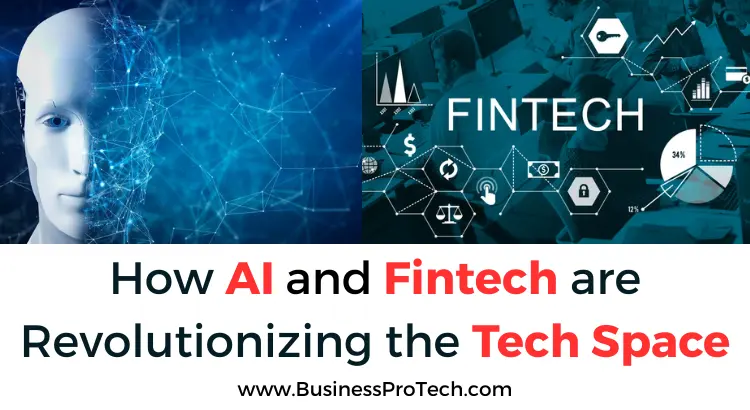There’s no doubt that technology is a key driver of economic growth and diversification across the globe, particularly when you consider innovations such as artificial intelligence (AI) and fintech.
The global fintech market alone is worth more than $112.5 billion, and it could grow to reach $332.5 billion by the end of 2028 according to estimates and research by industry experts.
As for AI, this drives a global industry that was valued at around $119.78 billion at the end of last year, while a projected CAGR of 38.1% between now and 2030 will drive further expansion over time; once the technology demonstrates satisfactory performance as well as safety, to meet industry standards and regulations around the world.
But how are these technologies changing the world, and how exactly are users and companies being impacted?
How Fintech is Affecting the Financial Industry?
Fintech can loosely be categorized as a portmanteau, which describes new words that have been created by blending two existing words (in this case ‘financial’ and ‘technology’.)
The term Fintech is currently best known for financial technologies such as ATM machines, online banking, and other forms of near-instantaneous banking and transactional services, which have led to fewer cross-border trade frictions and inconveniences.

Because of this, it should come as no surprise that fintech has had a huge bearing on the global financial services sector, from driving mobile banking and the rise of cryptocurrency to creating a rising demand for fintech law firm services and consultations.
Related Post: How Exactly is Fintech Reshaping the Finance Industry?
Fintech is inherently disruptive by nature, although it has progressed through several phases of evolution since its inception. There are five distinct phases of fintech evolution, starting with disruption in 2005 before leading into an era of discussion and development between 2014 and 2017.
This was followed by a period of partnership between traditional financial services providers and fintech brands, as the former looked to leverage modern technologies to drive financial inclusion and revolutionize their services while reducing operational costs.
This has led to the current era of integration, which will see a far greater level of collaboration in the financial services and fintech adoption soars and innovations like cryptocurrencies are embraced by national governments and central banks.
What About AI’s Impact on the Tech Industry?
AI is driven by concepts known as machine learning and predictive analytics, and in simple terms, it describes the ability of computer software or robot to replicate tasks that are usually undertaken by humans.
Machine and ‘deep’ learning are principles that enable systems to effectively learn and replicate a semblance of human intelligence and discernment, making it possible to carry out tasks without the need for specific direction or programming.

This incredible technology has been widely covered in the news across the world as a potential pathway to creating autonomous self-driving vehicles. Many companies are racing to make this a reality which would save a substantial amount of money for a wide range of industries and also lower the rate of road accidents once the technology is up to a safe standard.
Interestingly, AI has also impacted the financial markets, with predictive analytics enabling investors to access bigger and unstructured datasets and arrive at more informed insights in the process. This is very valuable to investors as it helps reduce risk and simultaneously helps increase certainty and or probability.
AI is misunderstood, of course, as while it continues to disrupt the labor market, it also has the potential to replicate basic tasks and create higher-paying jobs for people across multiple industries. It’s also continuing to disrupt virtually every aspect of the technology marketplace, even the search engine space that has been historically dominated by Google.
More specifically, it’s thought that increasingly sophisticated AI systems will ultimately eliminate the need for search engine result pages, thanks to their potential to autocomplete thoughts or questions and provide intuitive answers without the use of a browser URL or search bar.
You may have recently heard about chatGPT which has made headlines for potentially challenging Google’s dominance in the search engine space. On top of this, there are software engineers and web developers claiming to have had codes written for them just by asking, which is an unheard-of feat even by today’s expectations.
This would make for a seismic change and one that highlights AI’s potential power and influence on the tech world as well as the disruptive capability it has over the tech space, which is notoriously dominated by a few large corporations.
The Last Word
Broadly speaking, AI and fintech are positive innovations that change the world for the better through time and effort-saving capabilities.

Fintech has undoubtedly helped to drive financial inclusion across the globe, for example, while its integration into existing fiscal services can reduce operational costs and potentially make it cheaper to exchange or save money.
As for AI, this can help to replicate basic tasks and job roles, encouraging companies to retrain staff members and potentially unlock higher-paying jobs. Certainly, AI systems will need to be managed and analyzed, with human input crucial to ensuring their optimal performance as well as safety – in the case of autonomous vehicles, for example, or 3D printed buildings.
Sure, there are pitfalls with such disruptive technologies, especially during the stages of development and adoption. We’re well past these phases, however, as growing adoption and integration rates begin to deliver benefits to businesses and their customers.